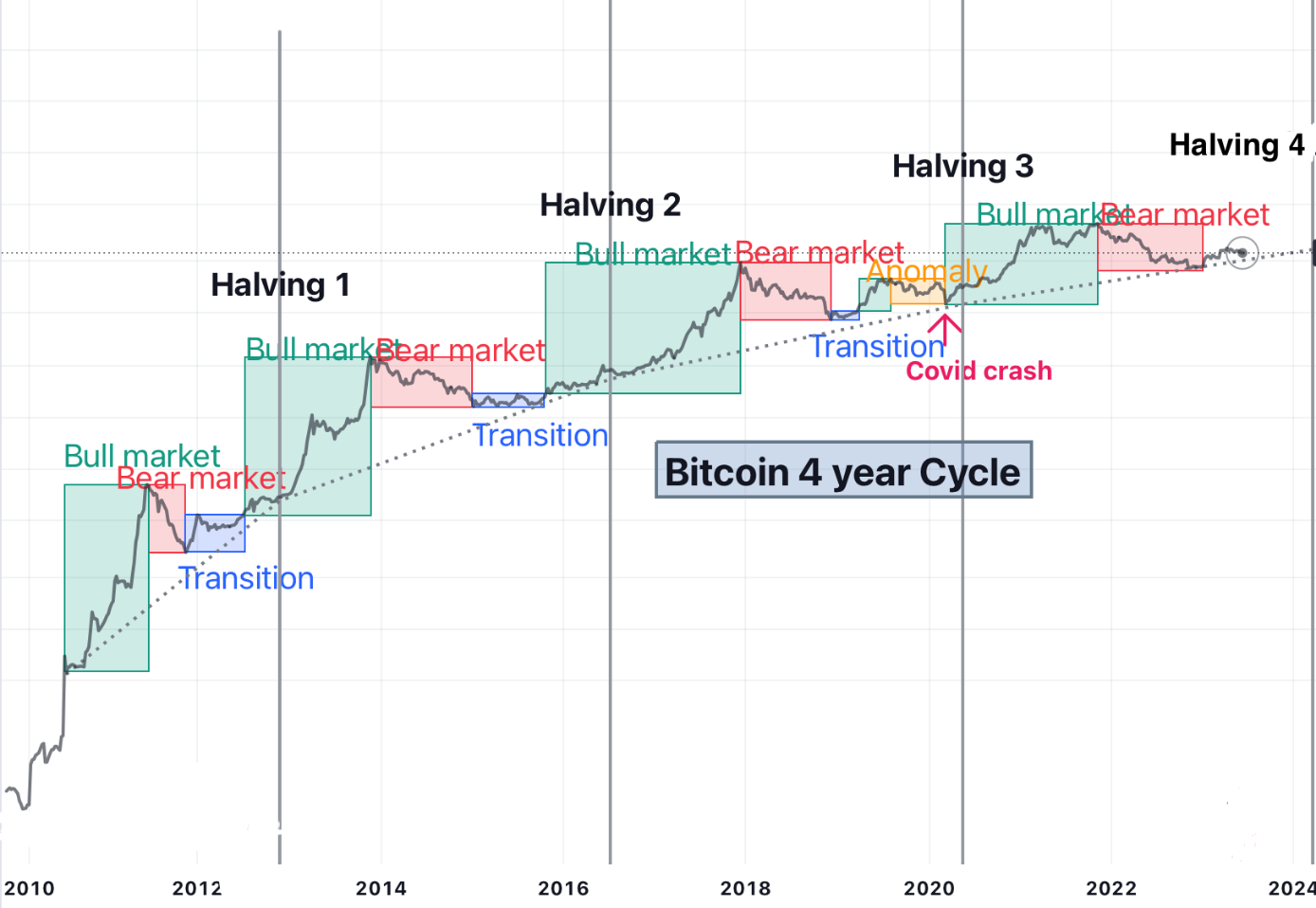The Great Decoupling: What It Means For Businesses

Table of Contents
Understanding the Great Decoupling
Defining the Phenomenon:
The Great Decoupling refers to the growing economic and political divergence between the United States and China, and the broader shift away from globalization towards regionalization and diversification. It's characterized by a move away from interconnected, globally integrated supply chains and towards more localized, diversified, and potentially less efficient ones. This decoupling is driven by several factors, including rising geopolitical tensions, concerns over national security, and a desire for greater economic self-reliance. The term encompasses more than just US-China relations; it reflects a broader trend of nations prioritizing domestic interests and seeking to reduce dependence on other countries, particularly for critical goods and technologies.
- Reduced reliance on single-source manufacturing and supply chains: Businesses are increasingly recognizing the risks associated with concentrating production in a single location.
- Increased focus on domestic production and "friend-shoring": Many countries are incentivizing domestic manufacturing and forging stronger economic ties with trusted allies ("friend-shoring").
- Growing tensions and trade restrictions impacting global commerce: Trade wars and sanctions are becoming more frequent, creating uncertainty and disrupting established trade routes.
- The rise of regional trade blocs and agreements: Regional trade agreements, such as the USMCA and the CPTPP, are gaining importance as nations prioritize closer economic cooperation within their regions.
- Increased scrutiny of technology transfer and intellectual property rights: Concerns over technology theft and intellectual property protection are leading to stricter regulations and increased scrutiny of cross-border technology transfer.
Impact on Business Supply Chains
Restructuring Supply Networks:
Businesses must reassess their reliance on single-source suppliers, especially those heavily concentrated in one region. The Great Decoupling necessitates a fundamental shift in supply chain strategies. Companies that continue to rely on overly centralized supply chains risk significant disruptions due to geopolitical instability, natural disasters, or pandemics. Diversifying sourcing locations is no longer a best practice; it's a necessity for survival.
- Exploring nearshoring and friend-shoring strategies: Relocating production closer to home ("nearshoring") or to countries with strong political and economic alliances ("friend-shoring") is becoming increasingly common.
- Implementing robust risk management frameworks to anticipate disruptions: Businesses need to develop comprehensive risk assessments that identify potential vulnerabilities in their supply chains and develop mitigation strategies.
- Investing in technology to improve supply chain visibility and resilience: Technology like blockchain, AI, and advanced analytics can provide greater transparency and enable more agile responses to disruptions.
- Building stronger relationships with diverse suppliers: Developing strong, collaborative relationships with a wider range of suppliers is crucial for ensuring supply chain resilience.
- Assessing the cost implications of relocating manufacturing or sourcing: While diversifying supply chains may increase costs in the short term, the long-term benefits of resilience and reduced risk often outweigh these expenses.
Geopolitical Risks and Opportunities
Navigating Geopolitical Uncertainty:
The Great Decoupling creates both challenges and opportunities. Businesses need to understand the evolving geopolitical landscape and adjust their strategies accordingly. Navigating this complex environment requires careful monitoring of political developments, proactive risk mitigation, and a willingness to adapt quickly to changing circumstances.
- Monitoring trade policies and regulations in key markets: Staying informed about changes in trade policies, tariffs, and sanctions is essential for making informed business decisions.
- Developing strategies for mitigating political risks: This might involve diversifying markets, hedging against currency fluctuations, or investing in political risk insurance.
- Identifying new markets and opportunities in emerging economies: The Great Decoupling is creating new opportunities in regions previously less integrated into global trade.
- Engaging in responsible and ethical business practices: Operating ethically and sustainably can enhance a company's reputation and build stronger relationships with stakeholders.
- Investing in political risk insurance: Protecting against potential losses due to political instability is a prudent measure for businesses operating in high-risk environments.
Adapting Your Business Strategy
Strategies for Success in a Decoupled World:
Businesses must be agile and adaptive to thrive in this new environment. Proactive planning and strategic adjustments are essential for navigating the complexities of the Great Decoupling. Those who embrace change and adapt proactively will be best positioned to succeed.
- Diversify your customer base and markets: Reducing reliance on any single market is crucial for mitigating risk.
- Invest in research and development to stay competitive: Innovation is key to staying ahead of the curve in a rapidly changing global landscape.
- Develop strong relationships with government agencies and trade organizations: Understanding and navigating regulations and accessing support networks are essential for success.
- Embrace digital technologies to enhance efficiency and resilience: Digital transformation can improve supply chain visibility, enhance communication, and streamline operations.
- Foster a culture of innovation and adaptability: A flexible and adaptable workforce is crucial for navigating uncertainty and responding effectively to change.
Conclusion
The Great Decoupling is a transformative event reshaping the global economic landscape. Understanding its implications and proactively adapting your business strategy are vital for survival and success. By diversifying supply chains, managing geopolitical risks, and embracing a flexible approach, businesses can navigate this new era and capitalize on emerging opportunities. Don't get left behind – start planning your response to The Great Decoupling today. Learn more about how to effectively manage the implications of The Great Decoupling and build a resilient business for the future.

Featured Posts
-
 Los Dodgers Rompen Su Propio Record El Mejor Inicio De Temporada En La Historia
May 08, 2025
Los Dodgers Rompen Su Propio Record El Mejor Inicio De Temporada En La Historia
May 08, 2025 -
 Bitcoin Price Prediction Will Trumps 100 Day Speech Push Btc Past 100 000
May 08, 2025
Bitcoin Price Prediction Will Trumps 100 Day Speech Push Btc Past 100 000
May 08, 2025 -
 Investors Are Piling Into This Hot New Spac Stock Should You Follow Suit
May 08, 2025
Investors Are Piling Into This Hot New Spac Stock Should You Follow Suit
May 08, 2025 -
 Get Your Psl 10 Tickets Sale Starts Today
May 08, 2025
Get Your Psl 10 Tickets Sale Starts Today
May 08, 2025 -
 Zenit Predlagaet Zhersonu Kontrakt Na 500 Tysyach Evro Podrobnosti Ot Zhurnalista
May 08, 2025
Zenit Predlagaet Zhersonu Kontrakt Na 500 Tysyach Evro Podrobnosti Ot Zhurnalista
May 08, 2025
Latest Posts
-
 Alshmrany Yuelq Ela Mfawdat Jysws Me Flamnghw
May 08, 2025
Alshmrany Yuelq Ela Mfawdat Jysws Me Flamnghw
May 08, 2025 -
 Thlyl Alshmrany Ltsryhat Jysws Hwl Antqalh Lflamnghw
May 08, 2025
Thlyl Alshmrany Ltsryhat Jysws Hwl Antqalh Lflamnghw
May 08, 2025 -
 Fydyw Rdt Fel Alshmrany Ela Tsryhat Jysws Hwl Flamnghw
May 08, 2025
Fydyw Rdt Fel Alshmrany Ela Tsryhat Jysws Hwl Flamnghw
May 08, 2025 -
 Alshmrany Tfasyl Mthyrt Hwl Antqal Jysws Almhtml Lflamnghw
May 08, 2025
Alshmrany Tfasyl Mthyrt Hwl Antqal Jysws Almhtml Lflamnghw
May 08, 2025 -
 Antqal Jysws Lflamnghw Alshmrany Yubdy Rayh
May 08, 2025
Antqal Jysws Lflamnghw Alshmrany Yubdy Rayh
May 08, 2025
